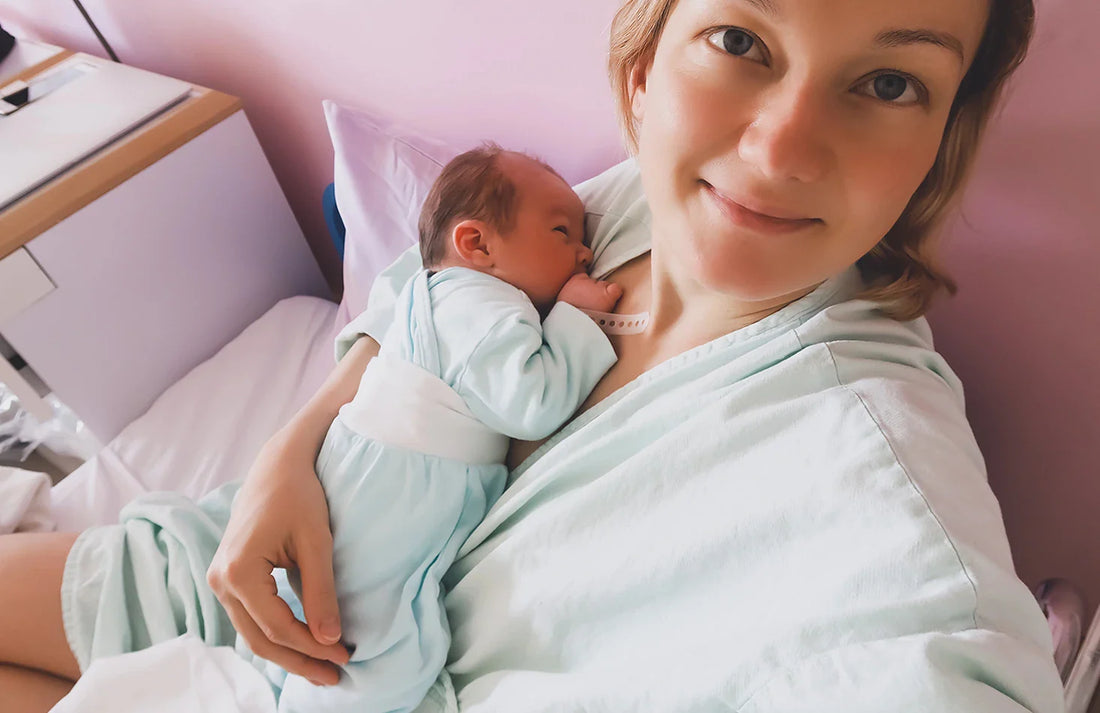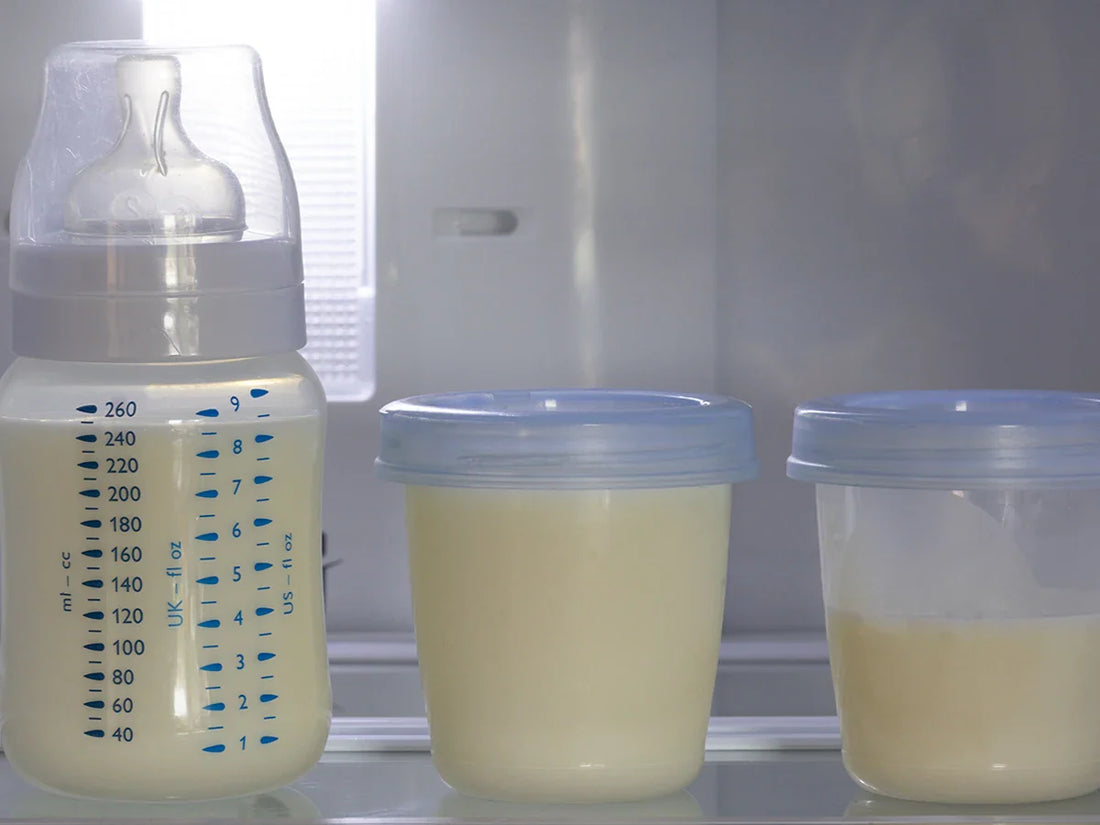
The Ultimate Hospital Bag Checklist for Mama + Baby
A tiny bit of planning and organization before your due date can make your hospital stay less stressful. Our ultimate hospital checklist will help you organize what you need to bring for labor and delivery, and what items will help make your stay a little more comfy.
When Should You Pack Your Hospital Bag?
Your due date is approaching, and we have a quick tip: embrace your inner Type-A and plan to have your hospital bag packed around week 36. We’d even recommend buying extra toiletry essentials, so you won’t have to worry about grabbing a toothbrush as you’re rushing out the door.
Further, consider packing two separate bags: one for labor and delivery, and another for postpartum recovery. This approach keeps essentials organized and easily accessible during different stages of your hospital stay.
What Should You Expect Following Delivery?
Your OB and the hospital nursing staff will be checking on you A LOT once you’ve been moved into the recovery room. After a vaginal birth, your uterus will be massaged and your postpartum bleeding (lochia) will be observed regularly. After a c-section, your catheter will be removed 6 to 8 hours following surgery, and your incision will be checked. With all that happening downtown, you may find it more convenient and less uncomfortable to wear a nightgown, rather than pajama or yoga pants, for the first 12 hours following your baby’s arrival.
Keep in mind: generally, Moms who deliver vaginally will stay in the hospital for 1 or 2 days; via c-section, closer to 3 or 4. Hospitals often provide basic postpartum supplies, but bringing your preferred brands or additional comfort items can enhance your recovery experience.
What to Pack in the Hospital Bag for Mom
- Picture ID, insurance information, & any required hospital paperwork. Having those ready ahead of time will make checking in faster and less stressful.
- Copies of your birth plan, if you have one.
- Eyeglasses and/or contacts and solution, if you wear them.
- A robe. Great for walking the halls during labor and for postpartum coziness.
- Toiletries, including: Hair ties, hair brush, regular or dry shampoo, conditioner, deodorant, toothpaste and toothbrush, facial cleansing cloths (in case you don’t or can’t shower immediately), lip balm, and body lotion (hospitals will DRY your skin out!).
- Comfy clothes, including: Socks, slippers, bathing suit top or sports bra (if you plan on laboring in water), and 1 or 2 nightgowns (sleeveless or with short loose sleeves to accommodate blood pressure cuffs) and/or 1 or 2 pairs of pajama or yoga pants you don’t mind sacrificing to the cause. High-waisted postpartum underwear (for extra support and comfort).
- Nursing bras and nipple cream. Breast pads to absorb any leaks. Your nipples will thank you for the proactive TLC.
- Cheap flip flops for the shower. Not just for dorm rooms, after all.
- Extra long phone charger or portable power bank (in-case outlets are not that close).
- Your own pillow. It will help you relax and hospital pillows are THE WORST.
- Your own cozy blanket or throw (hospital blankets can be thin).
- An empty bag for hospital freebies. Grab all the newborn diapers, mesh panties, giant pads you can, and Dermaplast you can.
- Stool softeners (recommended by many OBs to ease postpartum discomfort).
- Cooling pads or witch hazel pads.
- A roomy going home outfit – think something you were happy wearing at 6 months pregnant—and comfy flat shoes.
What to Pack in the Hospital Bag for Baby
- A properly installed car seat. (A friendly reminder that you can’t take your little one home from the hospital without it.)
- Going home outfits. You won’t know exactly how big or small your baby will be, so have options in different sizes ready to go! Aim for a newborn-sized outfit and a 0-3 sized outfit. Don’t forget hats, socks, and booties if seasonally appropriate.
- Baby mittens (to prevent scratches).
- Blankets. For the first two months, babies have difficulty regulating their base body temperatures and are especially sensitive to variations in environmental temperatures. Pack blankets, even in summer (just think lighter weight), for the first trip outside the hospital.
- Your pediatrician’s contact information. You’ll be asked for this info a lot, so have it ready to go.
- Bottles, if using. If you plan to bottle feed from day one, make sure to pack at least two for the hospital. And if you plan to use formula, go ahead and bring your preferred brand.
What to Pack in the Hospital Bag for the Birth Partner
- Lots of snacks and a reusable water bottle! The more variety of snacks, the better. And in our experience, if you bring donuts and coffee to the nurses’ station, well… Everyone, even nurses, has a favorite, right?
- iPad, Kindle, etc. You may not end up having a lot of down time, but just in case you do.
- A change of clothes (and a pair for sleeping in).
- Headphones.
- Toiletries, including: Shampoo, conditioner, deodorant, toothpaste and toothbrush, facial contact lens and solution (if needed), and any daily prescription medications.
- Cash or credit cards for parking, and change for vending machines. You might want to get food delivered, too.
- Pillow and blanket from home (hospitals may not have much for partners, or you may want something more comfortable).
Once you’ve got that bag packed, stash it close to the door and you’ll be ready to roll. Remember, every family's needs are unique. Feel free to customize this checklist to suit your personal preferences and circumstances.
Finding What’s Right for You
Albee Baby is the oldest family-owned specialty baby shop in the US, and we pride ourselves on providing our customers with the best assortment of baby products anywhere, at fair prices, always. We’re committed to being an inclusive resource for parents, and hope you’re feeling empowered to find the right baby gear for your family. Still have questions? Feel free to contact our baby gear experts at 877.692.5233 or by email at [email protected].
 Travel Cribs & Playards
Travel Cribs & Playards
 High Chairs
High Chairs
 Cribs & Nursery
Cribs & Nursery
 Health & Safety
Health & Safety













































